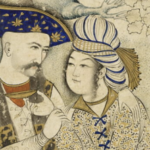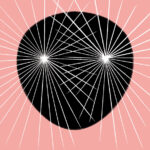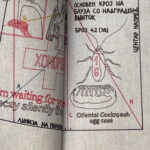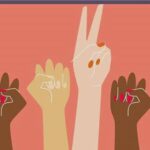 Binghamton University’s Center for Medieval and Renaissance Studies (CEMERS) (Web)
Binghamton University’s Center for Medieval and Renaissance Studies (CEMERS) (Web)
Time: 24.-25.10.2025
Venue: Binghamton Univ.
Proposals by: 15.04.2025
Queer, trans, intersex, non-binary, genderfluid, and gender-nonconforming people and sources are abundant in the premodern textual, artistic, and artifactual record, and studies of gender and sexuality in the medieval period are flourishing as never before. Yet, work on the LGBTQIA+ Middle Ages remains limited—especially in our classrooms and in sharing our work with nonacademic queer and trans communities. Many important sources remain out of reach for students, and an alarming amount of queer and trans medieval and early-modern history is not available—and its existence routinely denied—to LGBTQIA+ people beyond academia. Even researchers and teachers dedicated to pre- and early-modern gender and sexuality frequently remain siloed according to language and region: Latinists speak primarily to Latinists, Arabists to Arabists, and so on, while scholars of the Americas are often absent from conversations among scholars of premodern Africa and Eurasia. Thus, despite recent growth and successes, the study of the queer and trans pre- and early modern remains disturbingly fragmented and vital sources inaccessible to many.
In our own historical moment, members of the LGBTQIA+ community face frightening and rising levels of violence and oppression. So what are we, as scholars of the medieval and earlymodern periods, to do? CEMERS seeks to bring together researchers dedicated to the study of non-binary gender, trans identities, and queerness during the premodern period broadly defined, to share research and discuss the challenges of LGBTQIA+ scholarship. The organisers invite proposals for papers and panels for CEMERS’ 2025 conference. The conference will include plenary lectures by Leah DeVun (Rutgers Univ.) and Pernilla Myrne (Univ. of Gothenburg), as well as plenary roundtables dedicated to translation and pedagogy. The organiseres hope to facilitate conversations between scholars across disciplines and geographic and linguistic boundaries, with the purpose of moving beyond academic silos to build a broad, truly global, and ideally collaborative textual and theoretical basis for future research. They are particularly eager for papers that examine regions beyond Western Europe, but Europeanists are welcome and encouraged to submit proposals. Read more … (Web)

 Vida Bakondy and Maria Six-Hohenbalken: Österreichischen Akademie der Wissenschaften
Vida Bakondy and Maria Six-Hohenbalken: Österreichischen Akademie der Wissenschaften  ifk. Internationales Forschungszentrum Kulturwissenschaften – Kunstuniv. Linz in Wien: Julia Boog-Kaminski und Alexander Draxl
ifk. Internationales Forschungszentrum Kulturwissenschaften – Kunstuniv. Linz in Wien: Julia Boog-Kaminski und Alexander Draxl  ifk. Internationales Forschungszentrum Kulturwissenschaften – Kunstuniv. Linz in Wien
ifk. Internationales Forschungszentrum Kulturwissenschaften – Kunstuniv. Linz in Wien  ERC project „Sustained Concerns: Administration of Mineral Resource Extraction in Central Europe, 1550-1850 (SCARCE)“: SCARCE Colloquium
ERC project „Sustained Concerns: Administration of Mineral Resource Extraction in Central Europe, 1550-1850 (SCARCE)“: SCARCE Colloquium  Arbeitsbereich Kultur- und Geschlechtergeschichte am Institut für Geschichte der Univ. Graz: Geschlechterhistorischenr Salon und Reihe History of Masculinities, in Koop. mit dem Arbeitsbereich Geschichte des Mittelalters
Arbeitsbereich Kultur- und Geschlechtergeschichte am Institut für Geschichte der Univ. Graz: Geschlechterhistorischenr Salon und Reihe History of Masculinities, in Koop. mit dem Arbeitsbereich Geschichte des Mittelalters  Frauen- und Geschlechtergeschichte in Österreich – Newsletter #01 für 2024
Frauen- und Geschlechtergeschichte in Österreich – Newsletter #01 für 2024 Institut für Wissenschaft und Kunst (IWK) und Österreichische Gesellschaft für Exilforschung (öge)
Institut für Wissenschaft und Kunst (IWK) und Österreichische Gesellschaft für Exilforschung (öge)